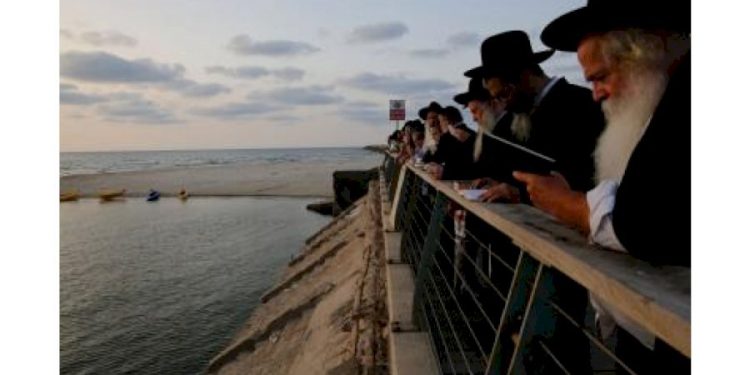Tel Aviv: Israel came to halt in observance of Yom Kippur, the Jewish calendar’s most important day associated with atonement and repentance.
Yom Kippur, or “Day of Atonement,” is a time for Jews to reflect and repent themselves, Xinhua news agency reported.
Jews traditionally fast on this day and hold intense services in synagogues through most of the day.
Before this year’s Yom Kippur, which began Wednesday at dusk and will end on Thursday at nightfall, tens of thousands of Israelis had arrived at the Western Wall in East Jerusalem for penitential prayers ahead of the two-day holiday.
During the holiday, the entire country almost comes to standstill.
Restaurants, cafes, cinemas, and other businesses and public institutions, are all shut down.
There will be no radio or television broadcasts, while people are refrained from using vehicles, except for medical emergencies.
Many people choose to go out by bike or stroll out on foot on the empty streets and highways. The beaches of Tel Aviv are typically full on this day.
Israel’s Magen David Adom medical emergency service said in a statement that the service was on high alert and they have equipped stations with more paramedics, ambulances, intensive care vehicles, and emergency motorcycles in order to help people who are in an increased risk of dehydration due to the fasting and summer heat.
Incoming and outgoing flights at Israel’s international Ben Gurion Airport were stopped at 1.35 p.m. on Wednesday, after about 20,000 passengers passed through the airport, a spokesperson for the Airports Authority said in a statement.
The flights will resume on Thursday, with the first plane scheduled to depart at 11.30 p.m.
Israel’s military announced that a two-day closure was being imposed on the West Bank and Gaza Strip.
All of the checkpoints in the Israeli-occupied West Bank and Gaza Strip will be closed and Palestinians will not be allowed to exit or enter the territory, “except for humanitarian cases”.
The closure will not be imposed on Israeli settlers in the West Bank settlements.






































